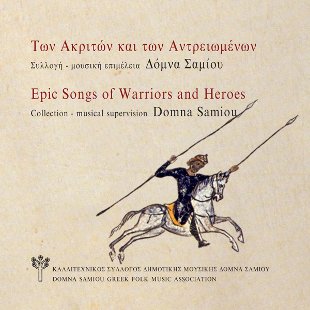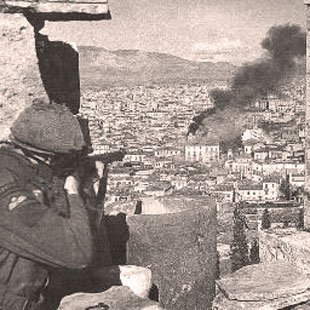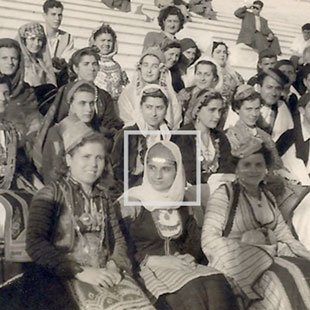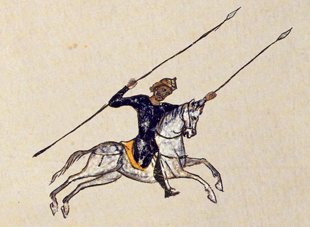You are at: Home page Her Work List of Songs When Kostantis Was Begging

When Kostantis Was Begging

Όντεν εδικονίζετο ο Κωσταντής
Listen
Lyrics
When Kostantis was begging in foreign lands,
he walked the streets and crossed the narrows
wearing his monk’s habit short, his sword appeared,
his silver sword [in its golden scabbard.
A princess spied it from high up in the palace.
- That’s no monk and that’s no beggar,
he could only be the son of a king... ]
Translated by Michael Eleftheriou
Original Lyrics
Όντεν εδικονίζετο ο Κωσταντής
Όντεν εδικονίζετο1 ο Κωσταντής στα ξένα,
τσι ρούγες ρούγες πορπατεί και τα στενά διαβαίνει,
φορεί τα ράσα κούντουρα2 κι εφάνη το σπαθί του
κι εφάνη τ' αργυρό σπαθί [με το χρυσό θηκάρι.
Βασιλιοπούλα το θωρεί από ψηλό παλάτι.
- Αυτός δεν είν' καλόγερος, μουδέ και διακονιάρης,
μόνο 'ναι βασιλιά παιδί...]
1εδικονίζετο: ζητιάνευε
2κούντουρα: κοντά
Information
- Region: Crete
- Categories: Acritic Song
- Rhythm: Free rythm
- Duration: 04:31
Collaborators
- Singer: Antonis Martsakis
Albums
Notes
This local song, the fruit of Crete’s ever-fertile musical tradition which incorporates resonant events from the history of kings or everyday folk as rhymed narrative, combined with relevant local traditions, was believed to tell of the doomed campaigns fought in Western Europe by the last Byzantine emperors in a desperate attempt to secure assistance from the lords of Christendom against the Ottoman peril looming over their empire. According to some older researchers, these tragic Byzantine kings all merge under the name of Kostantis, who represents in the popular imagination the legendary last king of Byzantium, Konstantinos XI Palaiologos, who also kept appealing for Western aid until the very end. The song, like the ‘Laments over the fall of Constantinople’, echoes the pain of modern Greeks over the fall of Byzantium and perhaps, indirectly, their national aspirations.
For some inexplicable reason, although they linked the song to historical events of the 15th century, the folklorists labelled it as akritic1, although the Academy of Athens’ anthology2 includes it among the Historical songs under the title ‘The song of Konstantinos Palaiologos’.
The song provides us with a fine example of the contradictory and confused relationship between history and oral tradition which, being based on the vagaries of memory, links us in experiential and emotional ways with a unspecified past, and often leads us to confuse one with the other. Miranda Terzopoulou (2017)
1D.Petropoulos, a member of the Hellenic Folklore Research Centre Archive (ΚΕΕΛ), offers an explanation: ‘We included them among the akritic songs because of their style and the name of the hero, Constantis’. (Ελληνικά Δημοτικά Τραγούδια, vol. 1, Athens 1958).
2Ελληνικά Δημοτικά Τραγούδια (Εκλογή), vol. 1, Academy of Athens, 1962, p. 123.
Recording information
Studio recording, 2004.







